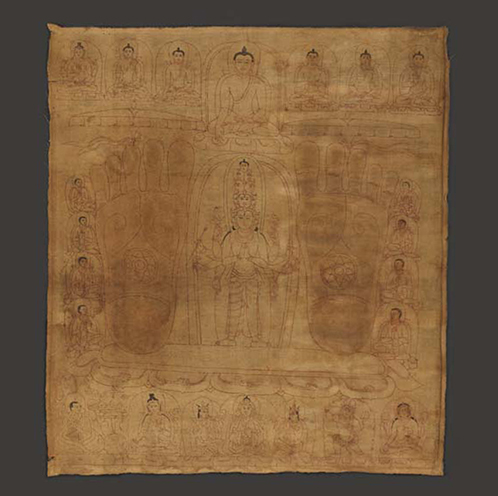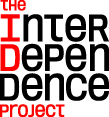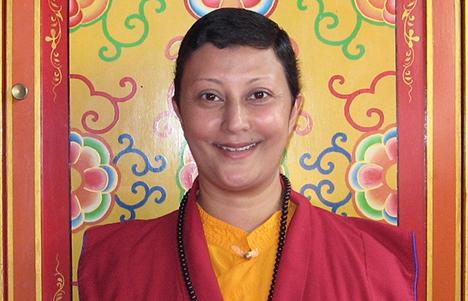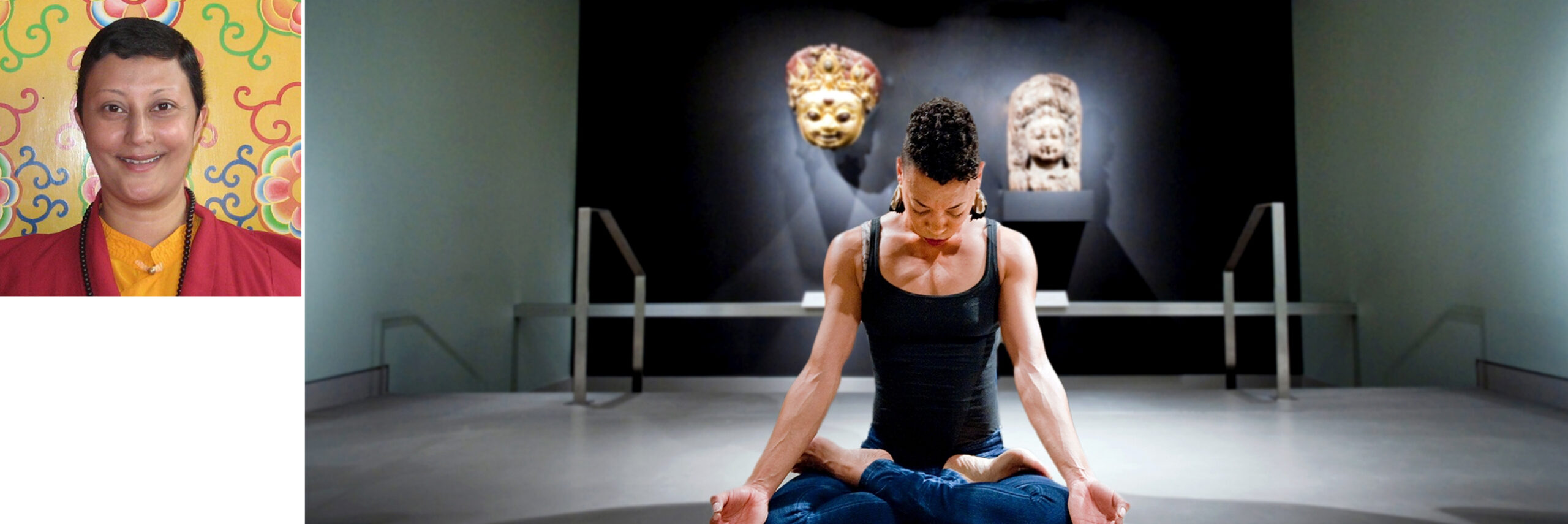
Lama Aria Drolma
Mindfulness Meditation
Wednesday, February 6, 2019
1:00 PM–1:45 PM
Related Artwork

Artwork Description
The bodhisattva Avalokiteshvara is the patron deity of Tibet and appears in a variety of forms, both peaceful and wrathful, and in large mandalas surrounded by numerous deities.
Avalokiteshvara, Ekadasamukha (the Eleven Faced Lord Gazing on the World), is peaceful in appearance, with eleven faces rising upward in groups of three; the tenth is wrathful, and the face at the top is that of the buddha Amitabha. Each face has two eyes, and long black hair flows across the shoulders. With eight hands the first pair at the heart hold a precious jewel. The three right hands extended to the side are in the mudra of generosity, holding a dharma wheel and a crystal prayer bead mala. The three on the left hold a water flask, a bow and arrow, and a lotus blossom. Each face is adorned with a crown and earrings. Necklaces and bracelets drape the neck and limbs, and the lower body is wrapped with a skirt. With both legs together he stands atop a lotus flower surrounded by a large nimbus and smaller aureoles about the heads, with two large footprints on either side. At the top center is the Buddha Shakyamuni with the five celestial buddhas at the sides. In the left corner is the goddess Prajnaparamita with four hands. Along the sides are eight monk-like figures. At the bottom center is the Tibetan king Songtsen Gampo with the two wives at the sides. Padmapani Avalokiteshvara is at the left followed by a seated donor figure. On the right is a standing wrathful Achala holding a sword followed by the goddess Tara.
As a universal symbol Avalokiteshvara embodies the compassion of all buddhas of the ten directions and three times. In the standing form with elevent faces he is closely associated with the famous bhikshuni (nun) of Kashmir, Lakshmi, who popularized a meditation practice incorporating a two-day purification and fasting ritual. Lord Atisha, Rinchen Zangpo, and others popularized this practice throughout Tibet.
About the Program
The Rubin Museum of Art presents a weekly meditation session led by a prominent meditation teacher from the New York area, with each session focusing on a specific work of art. This podcast is recorded in front of a live audience, and includes an opening talk, a 20-minute sitting session, and a closing discussion. The guided meditation begins at 19:20.
If you would like to attend Mindfulness Meditation sessions in person or learn more, please visit our website at RubinMuseum.org/meditation.
This program is supported with thanks to our presenting partners Sharon Salzberg, the Interdependence Project and Parabola Magazine.


Theme: Power
In this week’s podcast recording, Lama Aria Drolma draws inspiration from the enlightened bodhisattva Avalokiteshvara as she discusses how meditation can help us overcome mental conflicts through peaceful practice.
About the Speaker

Lama Aria Drolmahas been studying and practicing Tibetan Buddhism for over 10 years. She is trained in the Dharma Path program of progressive stages of meditation and contemplation for serious practitioners offered by Kagyu Thubten Choling monastery. Lama Aria Drolma teaches meditation worldwide and offers corporate meditation programs and is also invited as a keynote speaker at universities and organization. Lama Aria Drolma is a graduate of a traditional Tibetan Buddhist retreat spanning three years and three months, which is an advanced, completely cloistered, intensive meditation training program. She attended Mumbai University in India and graduated with a B.A. in sociology, and is trained in computer programming from NIIT, India. Lama Aria Drolma also actively volunteers as a fundraiser for breast cancer research and supports several nonprofit organizations.
Tickets: $19.00
Free for members (registration required)
—
Note: Late comers may not be admitted past 1:10 p.m., so as to not disrupt the session.

